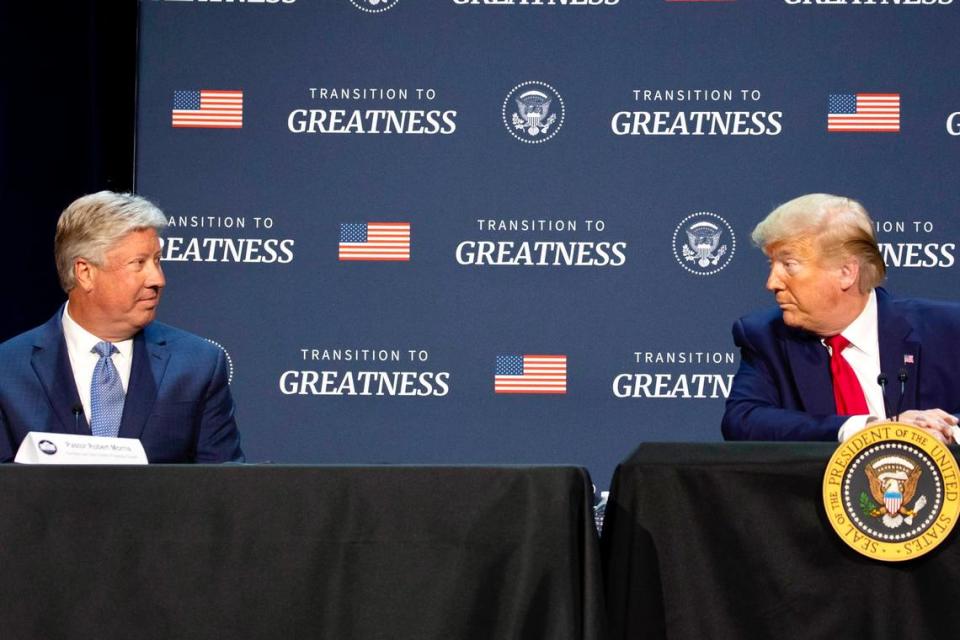Who goes to church to see political ads or Fort Worth campaign signs? Nobody. Stop it
The last place we want to see a great big political ad is in the middle of church.
But that’s where one Fort Worth church posted a giant campaign ad last Sunday — not just in church, but right behind the pulpit.
Mercy Culture Church, a spinoff of Donald Trump-friendly Gateway Church in Southlake, used the entire stage backdrop behind the pastor for a larger-than-life political billboard exhorting the faithful to visit a mayoral candidate’s website.
The message “Visit stevepenateformayor.com” appeared to be about 8 feet by 20 feet in bright red, promoting church pastor and elder Steve Penate’s revivalist campaign in the May 1 election.
Mercy Pastor Landon Schott, who trained at the Gateway megachurch under Trump advisor and donor Pastor Robert Morris, said Penate’s campaign is based on “prophetic word.”
Bascially, he was trolling the IRS.
He dared the federal government to enforce tax laws that prevent foundations and churches from taking sides or posting political signs.
“I had so many people message me and they’re like, ‘This is illegal! We’re calling the IRS on you,’ ” Schott said.
“And I’m like, ‘Hey, I heard they had long COVID lines. Have fun. Good luck with that.’ “
The posting of a giant political sign in the middle of a Sunday morning church service is a new round in the never-ending debate over churches’ campaigning.
Morris, whose Gateway church launched Mercy Culture in the former Calvary Cathedral north of downtown, used his own service last Sunday to single out nine local candidates in Southlake, Grapevine and Colleyville.
He described them as “members of our church or members of a group of churches in the area.”

In the absence of IRS tax enforcement, whether churches can endorse candidates is mostly left to the members.
“It is ultimately up to them to say no or to ‘vote with their feet’ by leaving for less politicized churches,” said Matthew Wilson, a Southern Methodist University political scientist and expert on the politics of conservative churches.
Introducing candidates makes sense, Wilson said. (But not giant campaign ads.)
“Praying for or de-facto endorsing candidates who are not connected to the congregation,” as Morris did, “seems to go quite a bit further,” he said.
The last time the Washington-based Pew Research Center polled Americans, 63% said churches should stay out of politics and 76% opposed endorsing candidates.
But evangelical Christians were the most likely to favor political activism, followed by worshippers in historically Black churches.
“It’s pretty common for pastors to have candidates in church and the pastor says, ‘I know this guy really well,’ “ said University of Texas professor Eric McDaniel.
“It’s such a low-information election, this is critical.”
Darrell Castillo, a former White House staffer under President Ronald Reagan and now teaching government at Weatherford College, said conservative churches might be more politically active than ever as a backlash against state and local health regulations for the COVID-19 pandemic.
“Any mention or invitation of any candidate from the pulpit ... is an endorsement,” he said.
Some critics call it a breach of the separation of church and state, But others see it as a First Amendment issue.
The IRS probably won’t go to a church with big political signs.
The question is why anyone would.

